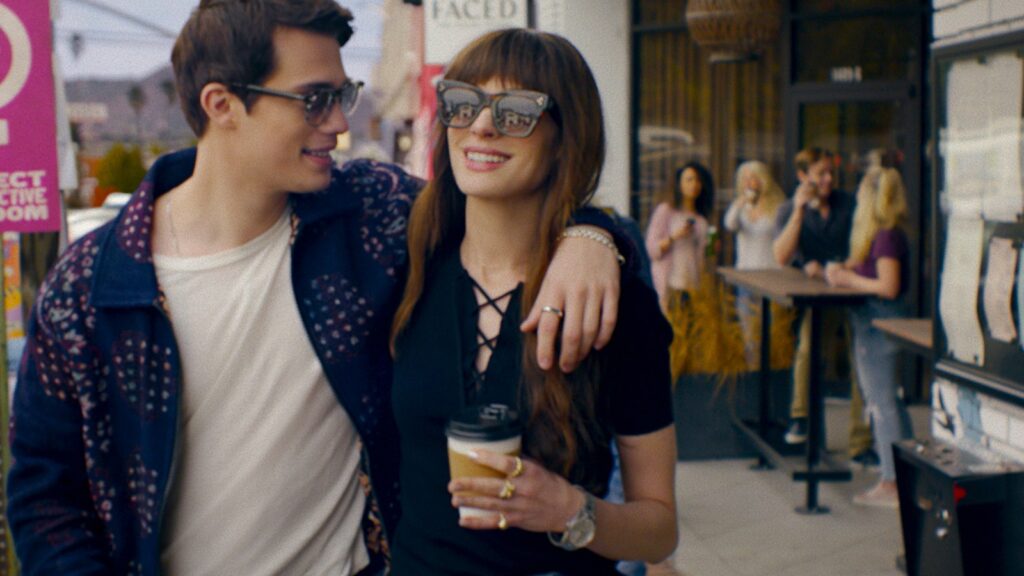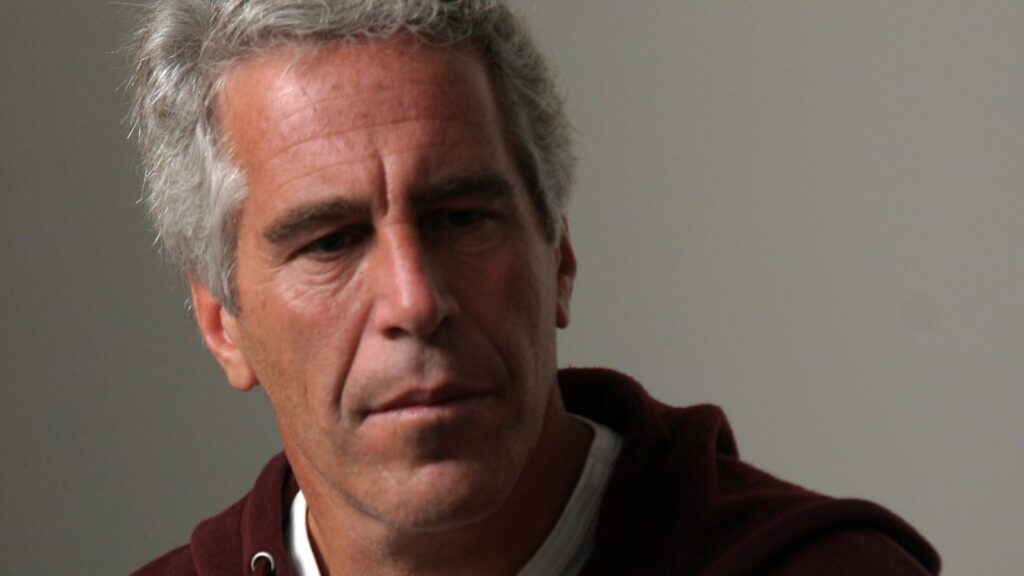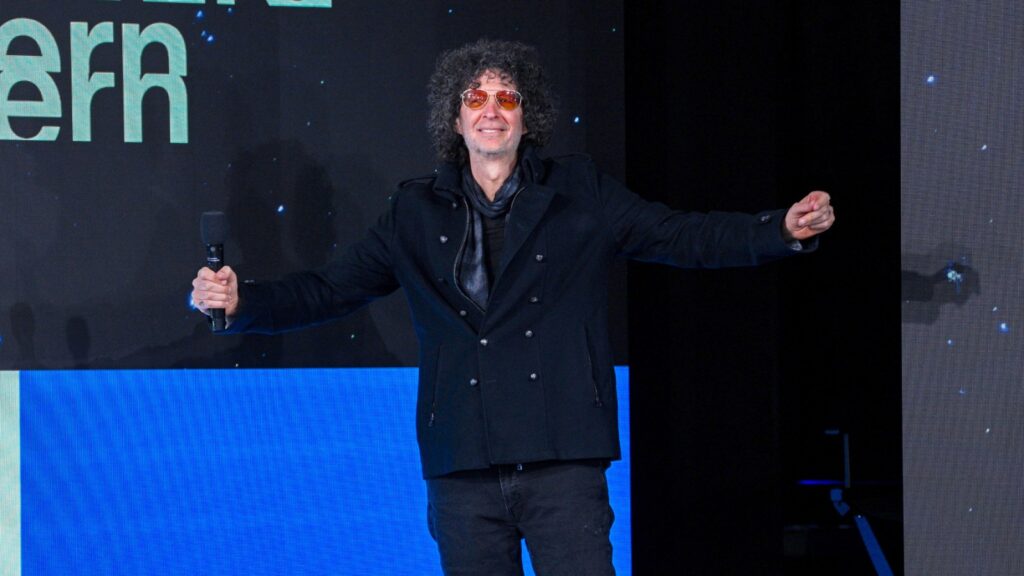‘The Idea of You’: Nicholas Galitizine On Playing a Pop Star in an Age-Gap Romance
There’s a new boy band in town — and its central heartthrob may not be who you expect.
Actor Nicholas Galitzine stars in The Idea of You as Hayes Campbell, a 24-year-old member of the boy band August Moon. The film, which comes out Thursday, charts Haye’s age-gap romance with 39-year-old gallery owner Solène Marchand (Anne Hathaway) after a chance meeting at Coachella, and the struggles their unexpected love brings. While the premise — a mom falling for a young singer seemingly patterned after Harry Styles or Justin Timberlake — reads decidedly similar to fanfiction from sites such as Wattpad or Ao3, it’s actually adapted from the hit debut novel by Robinne Lee, which came out in 2017.
Galitizine, 29, who has gone from small streaming roles to helming major projects, is no stranger to book-to-film adaptations. He previously starred in Red White & Royal Blue as Prince Henry, one part of the fictional gay romance between the First Son of the United States and the Prince of England, which was adapted from Casey McQuiston’s BookTok hit. In Bottoms, he was dumb quarterback Jeff, an idiot with a helmet and a deathly pineapple allergy. In Mary & George, he plays the George Villiers, the conniving son of the Countess of Buckingham (Julianne Moore). Now, he’s transformed into a bonafide boy band member for this twist on the usual May-December tale. (With the help of writer Savan Kotecha, Galitizine sings several original songs in the film.) And he tells Rolling Stone that jumping the wide variety of roles isn’t just happenstance — seeking out full-body transformations is often a major part of his process.
“A lot of that comes [with] just building out a physicality with all of these different roles,” he says. “The actors I admire the most are able to achieve a level of versatility through their career. And being able to shapeshift is something that I think is really exciting.”
But the ability to chart the next steps in his career also comes with a spot of humility. When I mention other handsome actors who’ve swung from romcom leads to dramatic projects, like Charles Melton, Galitizine can’t help but joke.
“I’ve chatted with Charles and it’s been cool to get to know through my press tour and his press tour,” he says. “Though I will say, he’s much prettier than me.”
Rolling Stone caught up with Galitzine to talk about the movement of boy bands, working with Anne Hathaway, and why he keeps playing royalty.
How well-versed were you in the land of boybands before you got the script for this project?
I wouldn’t say I was fluent. I appreciated boy bands before but I kind of grew up on rock bands and blues music and disco. Really, my sister was the one who introduced me to boy bands. The one I mainly listened to as a kid was The Backstreet Boys, which kind of ages me. Because of the performers boy bands are, I think the notion of playing one was really exciting because it’s so physical in a way. You have to be so charismatic on stage.
You’re a singer as well. Did this film make you consider a potential pop career in the future?
I have some friends who are musicians and pop stars. And the lifestyle to me — it’s so crazy. I have such admiration for them because whether you’re going on tour or performing in front of 80,000 people, it’s just entirely different. Acting is quite insular in a way, whereas being a musician, you have to give all your energy outwards. [I had such fun doing the music side of it. But whether I can be a pop star in real life, I think is maybe a different thing altogether.
So from Bottoms, to Red White & Royal Blue, to Mary & George, the roles you take on are often extremely varied. Is there an emotional or thematic throughline that you follow? What excites or intrigues you about these projects?
I’d say yes and no. I find people in very heightened circumstances, people who have to fight against their perception or a sense of responsibility — and I think — subverting the archetypal characters quite interesting to me.
What was it like working with Anne Hathaway and developing this chemistry between the two of you?
Honestly, it happened so organically. I don’t ever remember a moment where I felt intimidated. The chemistry test went so well. And I think sometimes someone’s had such a huge body of work like Annie, you don’t expect them to necessarily be as collaborative or open because they have a procedure of doing things. But her ability to play and go along with the bit was just something I hadn’t expected. She’s very ‘Yes, and?’ which I love. And I think that works very much in line with how I like to work too.
So far in your career, you’ve had a real knack for playing royalty…
I do like to make the distinction that George is not royal. I mean, obviously, Prince Robert and Henry are undoubtedly royal, but George kind of ascends to royalty adjacency I would say.
Royalty adjacent then. As someone so well versed in these royal roles, how do you distinguish performances between similar projects?
With Henry, it was just someone who was hiding the truest form of himself and was repressed and just had a beautiful sentimentality to him. But then with George, if we’re including him in that conversation, I mean, he’s probably the most interesting person I’ve ever played. [He’s] so multifaceted, both naive and fragile, but then turning into someone Machiavellian and powerful and conniving. So archetypically they kind of seem one way, but to me they all feel like extremely different people.
When you were playing Hayes, what kind of inner world did you discover about him as you worked through the character?
We talked a lot about where he’d been before joining the band. What his aspirations were, and what was his home life. That was something that I found really interesting because oftentimes, the people who really struggle and need the most affection and nourishment are the ones who don’t have stable family life or community. And that’s very much Hayes. His dad now suddenly wants a relationship now that he’s famous. His mom, she’s got a new partner and he doesn’t get to see her as much. But as you mentioned before, a large reason why the relationship works is that he does have a real sense of emotional maturity and morality about him. He’s very assured of himself in certain ways. Yes, he does need to be loved in another way and he’s looking for that maybe not even consciously.
Have you ever felt constrained by the fact that a lot of your roles are based on what essentially comes down to you having a very nice face.
I appreciate that. In Mary & George, there was a sense of weaponizing one’s looks that I thought was really intriguing. I felt more agency in that for the first time. And I’ve always had quite a pragmatic approach to to my acting where oftentimes I’m doing projects that might not be, let’s say the most creatively nourishing, but they move the needle in a direction to get me to a point where I get to do all the roles that I want to do.
“Not the most creatively nourishing” is a very, very kind way to talk about past projects you might not have felt were the strongest.
Look, I think it’s important to not admonish where we’ve been because they’ve all led to the point that you’re at now. I’ve been a broke struggling actor before and there are so many wonderfully talented people in this industry who never get the chance. People took a chance on me and I always appreciate that.
What are you most excited for people to kind of discover about The Idea of You.
The entry point is one of such fun and joy, but I do think that there is a deeper message within there. There is a power that comes with the storyline of a woman kind of coming of age at 40 and rediscovering herself. Rediscovering her autonomy. I love that the movie has that too. I think the movie really has multitudes which is what you want in a project. It’s also really exciting that this rom-com genre is being revived. It’s great having the Oppenheimer’s as well. We love those movies, but also being able to have a lightness also has value.





